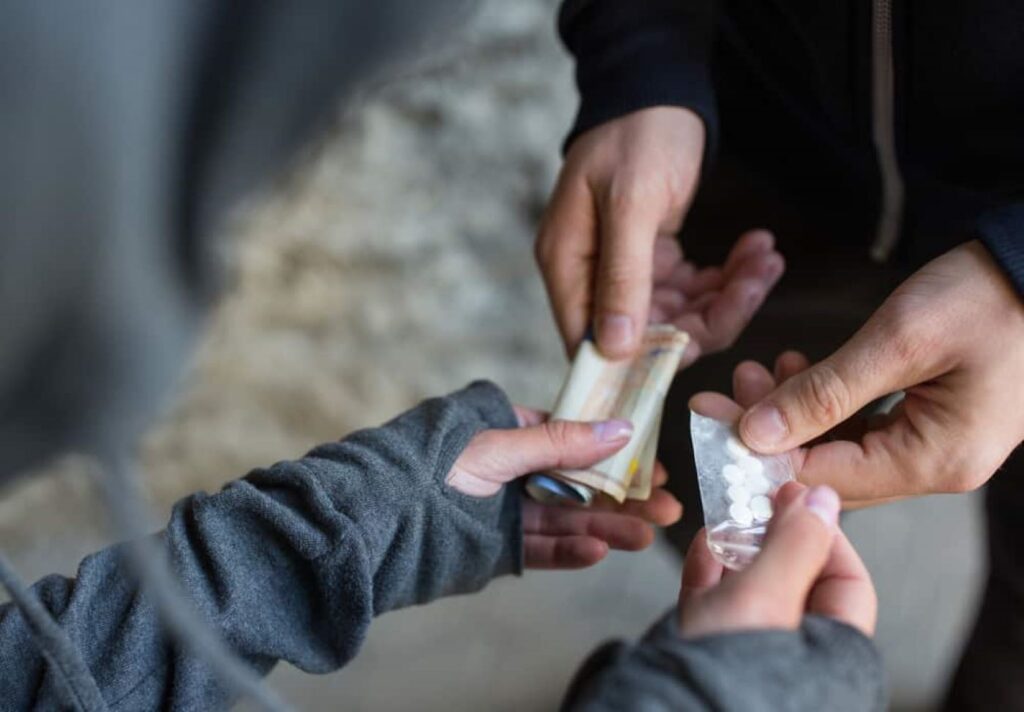Facing a drug crime charge is a daunting experience that can have severe, life-altering consequences. Whether you’ve been accused of drug possession, distribution, manufacturing, or trafficking, the stakes are high. But how you respond in the critical moments immediately after your arrest can make all the difference in the world.
If you have been charged with a drug crime, call Combs Waterkotte immediately at (314) 900-HELP or reach out online to schedule a free, confidential consultation with an expert criminal defense attorney. Our legal team has over 40 years of combined experience and has successfully handled more than 10,000 cases just like yours.
Here’s a step-by-step guide to help you in this challenging time:
What to Do If You’re Charged With a Drug Crime
1. Remain Calm & Composed… and Silent
Your actions during and immediately following an arrest can significantly impact your case. Avoid resisting arrest or panicking, as this can potentially lead to additional charges. Instead:
- Cooperate with law enforcement. Be polite but avoid volunteering any information aside from your name.
- Do not admit guilt or make statements. Anything you say can be used against you in court. It’s natural you want to explain yourself, but speaking without legal representation can hurt your case.
2. Hire an Experienced Drug Crimes Lawyer
This is one of the most vital steps. Drug crime cases are complex and often involve strict laws and procedures. A skilled Combs Waterkotte drug crimes lawyer will:
- Investigate the Evidence: We’ll determine whether evidence was obtained legally or if your rights were violated.
- Challenge the Prosecution’s Case. We stop at nothing to prove your innocence, whether that’s evidence suppression, questioning the credibility of witnesses, or negotiating reduced charges or dismissal.
- Represent You in Court: A strong defense can be the difference between freedom and severe penalties.
3. Understand the Charges Against You
Drug charges vary widely in severity and penalties. Familiarizing yourself with the charges you face will help you and your attorney build an effective defense. In addition to the previously mentioned possession, distributing, manufacturing, and trafficking charges, other common ones include:
- Drug Paraphernalia
- Drugs in Vehicle
- Cocaine Charges
- Heroin Charges
- Marijuana Charges
- Meth Charges
- Juvenile Drug Offenses
4. Avoid Talking About Your Case
Don’t discuss your case with anyone other than your lawyer. This includes family, friends, and particularly social media. Even seemingly innocent comments can be misinterpreted, twisted, or taken out of context and used against you by the prosecution. Your attorney will guide you on what you can and can’t say during this time.
5. Explore Alternative Sentencing Options
In some cases, courts may offer alternatives to traditional penalties, especially if substance abuse is a factor. Depending on your specific circumstances, participating in the following programs can demonstrate accountability and a commitment to change, potentially heading to reduced penalties. Consult with your attorney first. These options include:
- Probation or Diversion Programs
- Rehabilitation or Counseling
- Drug Court Programs
- Substance Awareness Traffic Offender Program

Combs Waterkotte Drug Crime Defense Strategy
Every drug crime case is unique, and the specifics of your situation will determine the most effective strategies for your defense. However, the skilled Combs Waterkotte drug crimes legal team has commonly used certain defenses. Here are some potential defense strategies that might apply to your case:
Drugs Were Not Yours
To charge you with a drug crime, law enforcement does not need to find the drugs directly on your person. They only need to demonstrate that you had access to or control over the drugs. However, if others had access or control, it creates reasonable doubt about ownership. That’s all we need.
For example:
- If the drugs were discovered in a shared apartment.
- If you were a passenger in a friend’s car where drugs were found.
Your attorney can argue that the drugs were not yours, using these circumstances to weaken the prosecution’s case.
It’s Not a Drug
Proving your guilt for a drug crime requires the prosecution to show that the substance in question is an illegal drug. This is typically done through analysis by a crime lab. If there are issues with chain of custody, the lab’s analysis, or handling of the substance, your attorney can challenge the claim that the substance in question is an illegal drug.
Illegal Search and Seizure
Law enforcement must have probable cause to search your home, vehicle, or person. If a search was conducted without probable cause, proper authorization, or visible evidence of illegal activity, we’ll work to make any discovered evidence inadmissible.
No Miranda Warning Issued
Under the Miranda ruling, law enforcement must inform you of your rights, including:
- The right to remain silent.
- The right to an attorney.
- That anything you say can be used against you in court.
If law enforcement failed to provide these warnings before questioning you, your lawyer might be able to suppress evidence gathered during your interrogation. This could result in reduced charges or even dismissal.
These common approaches provide a foundation for challenging drug crime charges. Your defense strategy will depend on the details of your case. An experienced Combs Waterkotte drug crimes defense attorney will evaluate all aspects of your case, from the evidence to procedural details, to build the strongest possible defense.
Charged With a Drug Crime? Reach Out to Combs Waterkotte Right Away
If you’re facing drug charges, don’t face them alone. At Combs Waterkotte, we understand the stress and uncertainty that come with drug crime charges. Call our expert drug crime lawyers as soon as possible at (314) 900-HELP or reach out online for a free case review.







